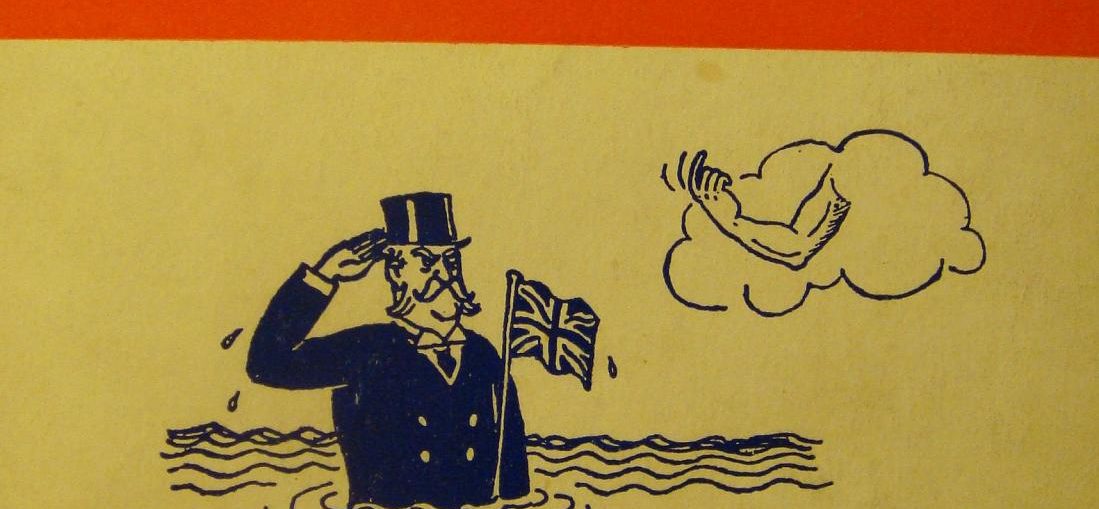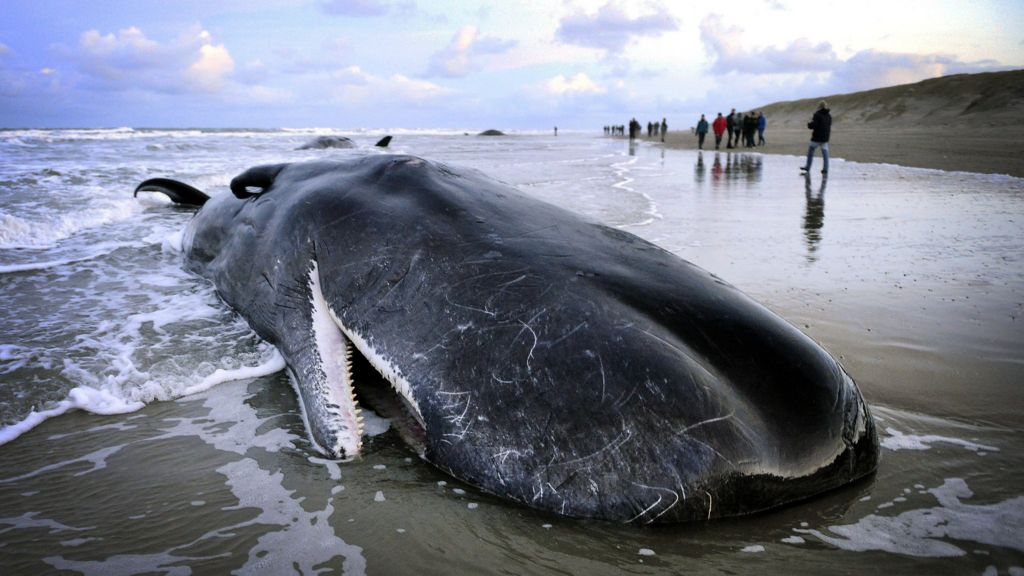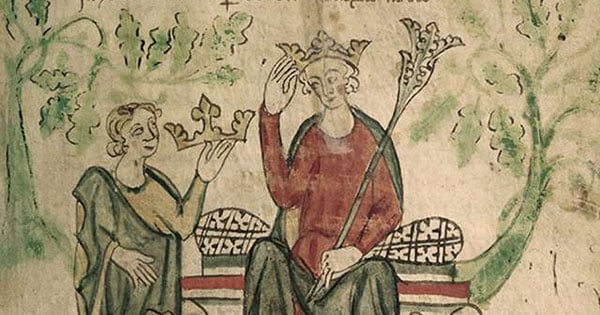
Despite controlling one-third of the world’s landmass and one-quarter of its population at its peak in the late 19th century, one really has to wonder if the English are even civilized in the first place. As Indian historian and MP Dr. Shashi Tharoor stated in a 2015 speech at Oxford University, “No wonder the sun never set on the British Empire… even God couldn’t trust the English in the dark.”
In G.J. Renier’s The English: Are They Human?, the author sets out to examine why the English are the way they are; it’s not an easy task. Despite the title being absolutely hilarious, the book itself is somewhat humorous, but overall quite academic. This, to me, is quite disappointing. Thus, I am setting out to improve upon his work, and find some case studies that properly shed light on what makes the English such an absurd people. Fortunately, there’s so much out there to choose from. After careful research, it is my conclusion that the English cannot be considered human.
Why?
Well, for this week’s reason, they insist that their royalty also rule over whales.

ON WHALE SOVEREIGNTY
Date: From 1315 onwards
Location: Open ocean controlled by Great Britain
The English have been a seafaring people for their entire existence; as a small island in the north Atlantic, there’s much to be found in its deep waters. Fishing has been a way of life for thousands of years, of course, but not until relatively recent history – since the last millenium or so – has humanity, which may or may not include the English, had the technology to go after much larger sea creatures for a source of nutrition. Whales that died at sea and washed up on shore were valuable sources of meat, blubber (turned into fat which could be burned in lamps), and bone, and it seemed inevitable that squabbles would eventually break out over the rights to these surprise windfalls of natural resources.
Beginning in 1148, a law passed by Hilary, Bishop of Chichester allowed him the right to “any whale found on the land of the church in Chichester, except for the tongue, which is the king’s.” A very obscure exclusion, but the Japanese consider it a delicacy, so perhaps this explains the rationale.

Proving that the English are furthermore ridiculous, when a Welsh fisherman caught and sold a sturgeon at auction in 2004, the police had to launch an official investigation over whether or not he’d had “royal authority” to make the transaction in the first place. According to the fisherman, he’d sent the Queen a fax – yes! – and in response, was told to “dispose of it as he saw fit”. Unfortunately, it wasn’t so simple. Because sturgeon are A) a royal fish, B) critically endangered, and C) highly valuable, due to their eggs being used to make caviar, a firestorm ensued. Adding to the ridiculousness of the investigation, sometime after the initial sale was made, the sturgeon vanished – and it took a few days for the fish to resurface again. According to the law, if a protected species is sold, it’s punishable with up to six months in prison or a fine of up to five thousand pounds. As for the sturgeon, the fish ended up in a museum, safe from any criminal masterminds and chum buckets for the remainder of its life.

Even though the British government is largely out of the giant fish industry, as traditional North Atlantic commercial whaling firms haven’t existed in the UK since the mid-19th century, the fact that the country remains so hung up on royal fish, versus, y’know, actually building a proper social safety net & functioning society, is proof enough to me that the English cannot be considered human.
***
Information for this article taken from here, here, here, here, here, here, here, here and here.
Doesn’t the Queen also rule over all the swans?
I my visits to London it seems she rules over pigeons.
The second line in Rule Britannia, is “Britannia rules the waves” It was right there.
ruling the waves and waiving the rules for 10 centuries now
Oh, the Great British, with their Cheerios, shrimps on the barbie, leprechauns, and dwendi. They have a whale of a good time!
I don’t know, this one’s fishy…
[pushes glasses up place where nose was before leprosy]
Huh. I thought OBJ was the Receiver of Wreck. History!
If this isn’t the next banner then I don’t even know what we’re doing here anymore.
They should change that masthead to “From Fist to Foreskin”
Can’t do anything at the library these days.
I believe this rule goes against the original charter of this library.
” As for the sturgeon, the fish ended up in a museum, safe from any criminal masterminds and chum buckets for the remainder of its life.”
I agree the English are not human but it’s a bit harsh to call the Queen a chum bucket, innit?
Don’t drop the second letter from that new title. Otherwise the Brexiteers will come after you.
Never mind the royalist Canadians…
I wish one of our resident Canadienses or ex-Canadiennes would explain to me why Canada still considers The Queen their head of state. That would make a great post!
https://www.youtube.com/watch?v=IloIoGj5Mj0
EXPLANATION PLEASE!!!
In 1982, we finally repatriated our constitution from the UK; while Canada has had “responsible self-government” since 1867, as a dependent Dominion, the UK mostly called the shots on foreign policy and defense matters until 1931. The Statute of Westminster, passed in 1931, split the unified Crown of the British Empire into multiple crowns so to speak – so the Monarch is no longer the Sovereign of the United Kingdom and its Empire, but rather, the Monarch of each of its regions (varying dependent colonies and self-governing dominions). After this point, many regions began to take the lead on their own foreign policy and defense situations, as with the official devolution of political power from a unified Crown, they no longer needed to get final approval from the Privy Council in London on major decisions.
This brings us to ’82. While Canada had been calling its own shots for 50 years, there was still the sticking point of that any constitutional changes – e,g, comparable to the Amendments, for you Yanks – had to be approved by the Monarch and UK Parliament. To PM Trudeau (the first one), this was intolerable, so he mustered as much national unity as he could (minus Quebec, because the province will be forever insufferable), in order to get the changes made. Now, when there’s any constitutional changes that need to be made, the UK doesn’t need to weigh in.
So why is ol’ Lizzie still involved? Great question. Because the original British North America Act, which gave Canada most of its current government structure, features the role of the monarch (or its representative, the governor-general) so prominently, it’s baked pretty firmly into law. Because constitutional amendments are hard as shit to pass – they have to pass the House of Commons, the Senate, plus two-thirds of the provincial legislations which in turn have to represent over 50% of the country’s population – nobody’s ever tried to abolish the country’s royalist ties. Could it happen? If someone properly motivated to fight for the legislation wanted to rustle up a campaign, I guess. But you’re up against a huge labyrinth of Parliamentary procedure – plus national sentiment that doesn’t mind having the Queen around. (Canadians seem to like the monarchy much more than Australia and New Zealand, for some reason. I can’t really put my finger on why, though.)
I blame Scott Thompson.
Thanks for the explanation!
“Canadians seem to like the monarchy much more than Australia and New Zealand, for some reason. I can’t really put my finger on why, though.”
Because Canadians live next door to a republic with ten times as many people, ten times as large an economy, and huge cultural influence. Canadians spend a disproportionate amount of time (in schools, in their art and literature, in journalism, and just plain everyday conversations) explaining how they are different from Americans. (And fussing in general over what it means to be Canadian. It’s been said that the Canadian national identity is … talking about the Canadian national identity.)
So a large number of Australians aren’t bothered by the prospect of becoming a republic with an elected head of state called a president, but in Canada there’s an instinctive revulsion to anything that would make Canada more like the U.S.
I think we’ve found our answer:
“in Canada there’s an instinctive revulsion to anything that would make Canada more like the U.S.”
As opposed to Barbados, who just told them to stuff it.